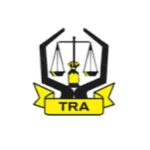TRA Data Management Officer II: 25+ Q&As
If you’re preparing for an interview or want more insight into the Data Management Officer II role at the Tanzania Revenue Authority (TRA), this guide provides over 25 questions and answers to help you prepare. The role involves managing and analyzing data, supporting the organization’s efforts in tax administration and revenue collection. Here are some key questions and answers to help you get ready for the interview:
General Role and Responsibilities
1. What does a Data Management Officer II do at TRA?
Answer: The role involves designing and maintaining data infrastructure (databases and systems) and analyzing data trends to create reports that support TRA’s operations and decision-making.
2. What qualifications are required for this position?
Answer: A Bachelor’s Degree in Data Science, Computer Science, or a related field is required for this role.
3. Why is proficiency in English and Swahili preferred?
Answer: Both languages are widely used in Tanzania, ensuring effective communication with colleagues, stakeholders, and preparation of reports for diverse audiences.
Technical Skills and Tools
4. What is the primary responsibility of a Data Engineer in this role?
Answer: As a Data Engineer, you’ll design, build, and maintain data infrastructure, ensuring data is stored, processed, and accessible efficiently.
5. What does the Data Analyst aspect of the job entail?
Answer: As a Data Analyst, you’ll analyze data trends, interpret findings, and compile reports to inform TRA’s tax administration and revenue strategies.
6. What technical skills are essential for this position?
Answer: Key skills include database management (e.g., SQL), programming (e.g., Python or R), and familiarity with data visualization tools (e.g., Tableau, Power BI).
7. Will I need to work with tax-related data?
Answer: Yes, you’ll work with tax records, compliance data, and revenue statistics to support TRA’s goals.
Work and Challenges
8. What is a typical day like for a Data Management Officer II?
Answer: You might spend your day designing database updates, troubleshooting data issues, analyzing trends, and drafting reports for management.
9. How important is data security in this role?
Answer: Very important. Protecting sensitive taxpayer data is critical to maintain trust and comply with regulations.
10. What tools might I use for data analysis?
Answer: Tools like Excel, Power BI, Tableau, or Python libraries (e.g., Pandas) can be used for trend analysis and reporting.
11. Can you give an example of a data trend you might analyze?
Answer: Analyzing monthly tax collection patterns to identify seasonal fluctuations or compliance issues.
12. How do you ensure data accuracy?
Answer: By implementing validation checks, cross-referencing sources, and maintaining clean data pipelines.
13. What challenges might I face in this role?
Answer: Challenges could include incomplete datasets, system downtimes, or integrating data from multiple sources.
Teamwork and Communication
14. How does teamwork play a role in this position?
Answer: You’ll collaborate with IT staff, tax officers, and management to align data systems with TRA’s needs.
15. What soft skills are important for this role?
Answer: Communication, problem-solving, and attention to detail are vital for explaining data insights and maintaining systems.
16. How might you use Swahili in this job?
Answer: You might use Swahili to communicate with local staff or prepare reports for Swahili-speaking stakeholders.
Data Infrastructure and Reporting
17. How do you handle large datasets?
Answer: By using efficient database designs, indexing, and tools like SQL or Hadoop to process and query data quickly.
18. What’s an example of a report you might prepare?
Answer: A report comparing quarterly tax revenues across regions, highlighting trends and anomalies.
19. How do you troubleshoot a data infrastructure issue?
Answer: Identify the problem (e.g., failed query), check logs, test components, and apply fixes like optimizing code or increasing resources.
20. Could this role involve working with AI or machine learning?
Answer: It’s possible. AI could be used to predict tax evasion trends or automate data cleaning, depending on TRA’s tech adoption.
Career Growth and Impact
21. Why does TRA need 20 Data Management Officers?
Answer: The scale of TRA’s operations requires multiple officers to manage diverse datasets and ensure timely reporting across regions.
22. How do you prioritize tasks in this job?
Answer: By assessing urgency (e.g., a report deadline) and impact (e.g., fixing a critical database error).
23. What’s the career growth potential for this role?
Answer: There is potential for advancement to senior data roles like Data Manager or IT Director, either within TRA or other organizations.
24. How does this role contribute to Tanzania’s economy?
Answer: By improving tax data management, you help TRA maximize revenue, funding public services like healthcare and education.
25. What’s a key question to ask in an interview for this role?
Answer: “How does TRA leverage data to enhance tax compliance?” This demonstrates your interest in their strategy and your role’s impact.
This comprehensive Q&A guide offers a thorough understanding of the TRA Data Management Officer II role, helping you prepare effectively for the interview. Focus on your technical expertise, problem-solving skills, and ability to work with both data and teams to excel in this position.


